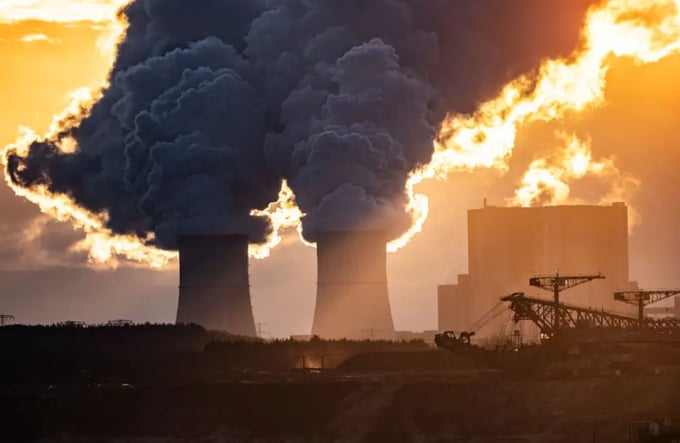June 19, 2025 | 06:31 GMT +7
June 19, 2025 | 06:31 GMT +7
Hotline: 0913.378.918
June 19, 2025 | 06:31 GMT +7
Hotline: 0913.378.918

Germany's carbon-credit program has been marred by scandal this year.
The country's program allows its biggest carbon producers — companies like Shell and other oil firms — to offset some of their emissions by supporting carbon-reduction projects abroad.
However, reports in German media this year show that some projects are misleading in their claims of reducing emissions — and some don't exist at all.
A report in Semafor on Wednesday notes that in one case, a whistleblower informed Shell that a carbon-reduction project the oil giant was involved with was, in fact, a chicken farm.
According to an industry group, the scandal has led to $5 billion in lost income for companies involved in inadequately verified or fraudulent projects.
In December, a report in the German outlet Handelsblatt said that half of projects in China are probably fake or misrepresenting their effectiveness.
The scandal involves Upstream Emission Reduction credits, which are produced by third-party energy firms and sold to producers looking to offset 1.2% of their emissions, as mandated by the German government.
Most UER projects are located in China, with others in Azerbaijan and Nigeria. However, German media identified at least 27 projects that aren't actually reducing any emissions or are exaggerating their results.
"In 27 UER projects from China, we have received indications of massive irregularities and even clear fraud," an industry insider told Handelsblatt in December.
Some revelations about fraudulent projects — like the chicken farm Shell was involved with — come from whistleblowers, while others have surfaced from satellite photos of project locations showing empty land.
Semafor notes that the scandal is highly damaging to the global carbon-reduction effort, which is already operating on little trust in the biggest polluters' ability to self-regulate and actually reduce their carbon footprint.
It is also a blow to regulators who are meant to be policing the effort and overseeing the transition to net-zero. In the case of the fraudulent UERs, compliance with the 1.2% reduction is not voluntary but legally mandated by the government, leading to questions over why agencies did not have more oversight of the program.
(Businessinsider)

(VAN) Extensive licensing requirements raise concerns about intellectual property theft.

(VAN) As of Friday, a salmonella outbreak linked to a California egg producer had sickened at least 79 people. Of the infected people, 21 hospitalizations were reported, U.S. health officials said.

(VAN) With the war ongoing, many Ukrainian farmers and rural farming families face limited access to their land due to mines and lack the financial resources to purchase needed agricultural inputs.

(VAN) Vikas Rambal has quietly built a $5 billion business empire in manufacturing, property and solar, and catapulted onto the Rich List.

(VAN) Available cropland now at less than five percent, according to latest geospatial assessment from FAO and UNOSAT.

(VAN) Alt Carbon has raised $12 million in a seed round as it plans to scale its carbon dioxide removal work in the South Asian nation.

(VAN) Attempts to bring down the price of the Japanese staple have had little effect amid a cost-of-living crisis.